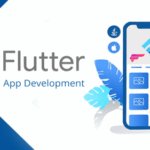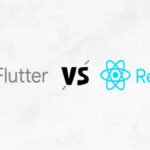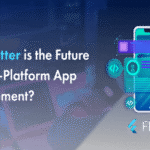Mobile AppEcommerce Mobile App Development Services for Retail Growth

Table of Contents
In today’s hyper-connected world, retail success depends on your ability to sell where your customers are—and more than ever, that place is mobile. With over 80% of online shopping happening through smartphones in India, building a robust ecommerce mobile app isn’t just a digital upgrade; it’s a business imperative.
Whether you’re a brick-and-mortar store expanding online or a D2C brand scaling rapidly, choosing the right ecommerce mobile app development services can drive significant revenue growth. Especially in retail-heavy markets like Chennai, having a localized, scalable mobile strategy gives you a clear competitive edge.
Why Ecommerce Apps Are Driving Retail Growth
Mobile apps have 3x higher conversion rates than mobile web
In-app push notifications increase repeat purchases
Loyalty programs and personalized deals boost retention
24/7 storefront enables passive revenue generation
Retailers that offer seamless app experiences gain faster customer trust and better CLTV (Customer Lifetime Value).
Ecommerce Trends in Chennai and India
The Chennai retail ecosystem is experiencing a significant shift as businesses adopt digital-first models to compete in both local and national markets. Whether you’re selling sarees in T. Nagar or running a D2C electronics store, partnering with a mobile app development company in Chennai ensures your ecommerce app is not only functional but also tailored to the buying behavior of the region.
Features Every Ecommerce App Should Have
User login (social/email/OTP)
Product search and filtering
Secure payment gateway integration
Wishlist and cart management
Order tracking and delivery status
Push notifications
Wallets and loyalty rewards
Multilingual and multi-currency support
Admin panel for order & inventory management
Types of Ecommerce Apps (Single-Store, Marketplace, etc.)
- Single Store – Ideal for D2C brands
- Multi-Vendor Marketplace – Like Amazon/Flipkart
- Aggregator Model – For industries like food delivery or pharmacy
- Subscription-Based – Regular deliveries or member-only models
Each has unique architecture and scalability requirements.
Native vs Cross-Platform for Retail Apps
Native: Best for complex features, high volume, and advanced integrations
Cross-platform (Flutter, React Native): Cost-effective and faster to deploy
Retailers can start with cross-platform for MVP and upgrade to native based on traction.
What to Expect from a Development Partner
An experienced ecommerce app partner won’t just build features—they’ll design scalable experiences. A solid development team will ensure your app includes essential workflows like CRM sync, loyalty integrations, fast load speeds, and order automation. Collaborating with seasoned developers allows your business to thrive in a rapidly growing mobile-first economy.
Real Use Cases from Chennai
Case Study 1 – Confidential (Apparel Brand)
Flutter-based ecommerce app with bilingual support (Tamil & English). Result: 3.5x sales growth.
Case Study 2 – Confidential (Electronics Retailer)
Native app with loyalty wallet and B2B order module. Result: ₹5 Cr+ in app revenue in 8 months.
Case Study 3 – Confidential (Organic Grocery Store)
Inventory-linked app with real-time stock, UPI integration. 78% repeat order rate in first 6 weeks.
Smart Personalization with AI
Delivering a personalized experience isn’t optional—it’s expected. By working with a specialized AI development company in Chennai, retailers can create intelligent ecommerce apps that adapt to each user. From behavioral recommendations to NLP-based search and real-time chatbots, AI can power every interaction for better engagement and conversion.
Backend AI Software for Ecommerce Automation
The frontend is only half the battle—scaling ecommerce apps depends heavily on robust, intelligent backend software. A AI software development company in Chennai can build the automation backbone needed for predictive inventory, customer segmentation, abandoned cart recovery, and real-time alerts. These systems reduce manual errors and drive operational efficiency.
Cost Breakdown for Ecommerce App Development
| App Complexity | Estimated Cost (INR) | Timeline |
|---|---|---|
| Basic Single Store | ₹6L–₹9L | 6–8 weeks |
| Multi-Vendor Platform | ₹12L–₹18L+ | 10–16 weeks |
| AI-Driven Platform | ₹20L–₹30L+ | 14–20 weeks |
Add-ons: SEO-ready landing pages, admin dashboard, marketing automation, etc.
Final Thoughts + CTA
A mobile-first ecommerce strategy is no longer optional—it’s essential for survival and growth in the digital-first retail economy. With Chennai emerging as a hub for full-stack mobile expertise, partnering with the right development team gives you access to robust tech, faster launch cycles, and built-in scalability.
Choose a vendor who understands ecommerce UX, AI personalization, and app performance at scale. The right ecommerce mobile app can turn your store into a 24/7 sales engine.
FAQs
1. Is a mobile app better than a responsive website for ecommerce?
Yes, mobile apps deliver better speed, personalization, and user retention.
2. How soon can I launch an MVP?
6–8 weeks for a basic ecommerce app with essential features.
3. What platforms should I build for?
Start with Android (mass audience), then expand to iOS.
4. Can I integrate payment wallets and UPI?
Absolutely. Most apps today support Paytm, Razorpay, GPay, etc.
5. How do I handle product returns and refunds?
The app backend should support return workflows, refund APIs, and customer support chat integration.




